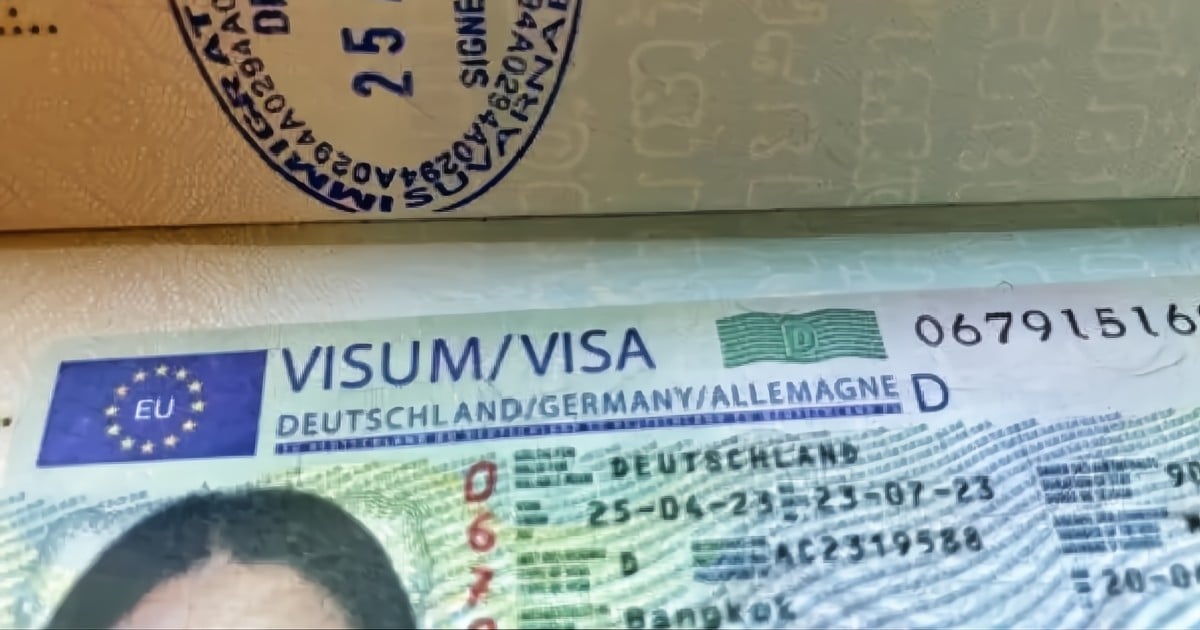
Related videos:
Starting from January 1, 2025, Germany has implemented a comprehensive reform of its visa procedures to attract skilled professionals from around the world, including those from Cuba.
The German Ministry of Foreign Affairs has launched an online portal that allows for the digital application of national visas for stays longer than 90 days, streamlining and speeding up the process for workers, students, and researchers, reported the alternative media outlet Kubakunde.
This initiative aims to address the shortage of approximately 400,000 professionals in key sectors such as engineering, information technology, healthcare, and skilled trades in Germany.
The Minister of Foreign Affairs, Annalena Baerbock, described this digitalization as an "administrative revolution" aimed at positioning Germany as an attractive destination for international talent.
Among the notable programs is the "Chancenkarte" or "opportunity card," introduced in 2024.
This points-based system allows professionals from non-EU countries, including Cuba, to reside in Germany for up to one year while looking for employment, with the option to work up to 20 hours per week during that time.
Additionally, the Qualified Professionals Immigration Law, in effect since 2020, facilitates the entry of specialized workers by eliminating the requirement for a prior job offer in certain cases and simplifying the recognition of foreign qualifications.
The "EU Blue Card" also provides advantages for highly skilled professionals, such as a faster pathway to permanent residency and options for family reunification.
These measures represent a significant opportunity for Cuban professionals looking to expand their career horizons in Germany.
Interested parties are advised to consult the online portal of the German Foreign Office and the German diplomatic representations for detailed information on updated requirements and procedures.
In recent years, visa policies between Germany and Cuba have undergone significant changes, reflecting both the evolution of bilateral relations and migration dynamics in Europe.
During the first half of 2023, Germany saw a significant increase in asylum applications from Cuban citizens, rising from 73 in the same period of 2022 to 607 in 2023, representing an increase of over eight times.
In response to this increase, starting from July 29, 2023, Germany implemented a transit visa requirement for Cuban citizens passing through its airports en route to third countries outside the Schengen area.
In November 2023, the Council of the European Union also approved the digitization of the Schengen visa application process, allowing applicants, including Cubans, to apply for their visas online. This initiative aims to simplify and streamline the application process, making it easier for legitimate travelers to access the Schengen area.
Since February 2020, with the implementation of the new Schengen Visa Code, obtaining visas of up to five years has been made easier for frequent and trusted travelers, benefiting Cuban citizens who meet the established criteria.
This background provides relevant context for understanding the recent measures taken by Germany to streamline visa procedures for skilled workers, offering new opportunities for Cuban professionals in the German job market.
Frequently Asked Questions about Visa Simplification for Cubans in Germany
What changes has Germany made to its visa procedures for Cubans?
Since January 1, 2025, Germany has streamlined its visa procedures to attract skilled professionals, allowing for digital applications for national visas for stays longer than 90 days through an online portal. This simplifies the process for workers, students, and researchers, including Cubans.
What is the "Chancenkarte" and how does it benefit Cubans?
The "Chancenkarte" or "opportunity card" is a points-based system that allows professionals from countries outside the EU, such as Cuba, to reside in Germany for up to a year while seeking employment. During this period, they can work up to 20 hours a week, providing a significant opportunity for Cuban professionals.
What are the job opportunities for Cubans in Germany according to the new reform?
The German reform aims to address a shortage of approximately 400,000 professionals in key sectors such as engineering, information technology, healthcare, and skilled trades. Qualified Cuban professionals now have a significant opportunity to work in these sectors in Germany, thanks to the new streamlined visa procedures.
What advantages does the "EU Blue Card" offer to Cubans?
The "EU Blue Card" offers highly qualified professionals faster pathways to permanent residency in Germany, along with options for family reunification. This represents a significant advantage for Cubans looking to establish themselves more permanently in Europe.
Filed under: